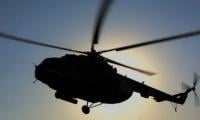Nations may be born in the hearts of poets, but it takes the deliberative action of a collective to lend substance to their being. Nations have to be made; they are the products of the exercise of agency. In lieu of Anderson’s understanding of nations as imagined communities, Schaflechner, Oesterheld, and Asif (2020) discuss the ‘sufficiency’ of alternative imaginaries of the nation state, outlining the discursive practices which go into the construction of nationhood which, in turn, informs the margins of state structure. The Westphalian emphasis on a certain mode of national organisation as sacrosanct is today subject to fractures born of its own underlying contradictions. According to Schaflechner et. al., no ‘authentic’ tangible construct of nationhood exists, each being subject to a degree of insufficiency in ‘imagination’ born of a certain context.
The definition of a nation is therefore subject to constant negotiation, reiteration, and reification – an exercise which impacts the resilience of the idea of nationhood in a post-modern age beset with competing counter-narratives. Thus, the state as an entity draws strength from the concept of ‘nationhood’ at its core; the hyphenated construct linking nations with statehood being a reflection of select social, political, and economic processes embedded in a set of identities. In the liminal spaces of the postcolonial experience, where a certain experience of statehood was imposed top-down on local communities still in the process of ‘imagining’ themselves a nation, there is a need to revisit the indigenous ‘lived experiences’ of subaltern spaces in order to understand what being a nation-state entails. This, in turn, has bearing on the nature of political system adopted by such a state, as well as on the inter- and intra-institutional interaction between its various organs.
The parliamentary democratic state model was transplanted to South Asia by the British in a bid to transform existing administrative practices so as to streamline the governance of empire. Prior to this transplantation, the Mughal ‘state’ exercised a vastly different role in a region where local kinship and hereditary networks were a key source of social and economic security (Shani, 2006). Dynastic succession and the politics of patronage remained core sociopolitical practices, while the military functioned as an administrative tool vital for the smooth functioning of civil governance (Niaz, 2020). In light of this, the nature of the social contract between the ‘citizen-subject’ and the Mughal ‘state’ bore little resemblance to that, say, between the citizen and the state in revolutionary France, itself based on a set of post-Renaissance ideals grounded in the notion of the rational ‘man’.
The assumptions informing the behavior of this man as a political agent, as well as attendant ideas of citizenship evolved in Great Britain following 1688, had little to do with the ‘lived realities’ of the subcontinent (Siddiqi, 2019), which nevertheless became a test subject for the British to, as stated by Macaulay, fashion a colonial subject in their own image. Any understanding of the behavior of modern-day nation states in the region of South Asia must contend with the historical context of the emergence of these states, with particular attention paid to the presence of the state in the public sphere, pre- and post-partition. The absence of centralized state presence at the grassroots of rural, agrarian South Asia, immediately following the independence of its constituent states, allowed for landed, feudal classes to institute themselves as the key mediators in any emergent social contract. Thus, abortive attempts to develop either parliamentary or presidential systems in contexts such as Pakistan failed to tackle the historicity of these systems and their relevance to an indigenous context, where the vast majority still continues to rely on such basic frameworks as wadera, baradari, and pirs (Siddiqi, 2019). Given the ensuing mismatch between lived reality and insufficiently imagined nation-statehood, the Pakistani experiment failed to capitalize on either its geostrategic location, or its wealth of natural resources.
Today, following the impact of COVID-19, the Pakistani state is seeking to assert itself in spaces hitherto characterized by its absence. From attempting to better map the formal/informal economic sector in lieu of launching the Ehsaas Welfare Program, to instituting local governance reforms aimed at enhancing collaborative crisis management, the state, in the wake of an unprecedented disruptive pandemic, has been allowed room to revisit the existing social contract. This corresponds with existing understandings, such as Pelling and Dill’s thesis, outlining the ‘critical junctures’ presented by natural disasters in permitting a reinterpretation of the state-citizen social contract (2010) Such a reinterpretation may be contextualised using the role of the military as a conduit enabling state access to peripheral areas, hitherto characterized by an institutional vacuum. This echo of blended civil-military governance speaks of a collaborative formula from the days of the pre-Raj Mughal rule in the subcontinent. Thus, the organisational strengths of the military are instrumental in aiding the institution of joint civil-military developmental and humanitarian roles, even as the state struggles to transcend the hurdles of a fractured polity. An additional, though equally fundamental, collaborative venture involves an exercise in ‘imagining’ a nation through set discourses exercising potent affective appeal.
The politics of effect require the construction and dissemination of powerful symbols that are representative of the political and cultural imaginaries underlying nationhood. It is these symbols which may inspire a diverse collective towards joint action, birthing a spirit of sacrifice and compromise necessary for the realization of a national project. The state’s inability to generate discourse capable of producing such symbols has been compensated, to a degree, by the exercise of affective power by the Pakistani military in establishing itself as the guardian of the nation’s ideological frontiers. Nevertheless, the viability of any state structure rests in its capacity to incorporate counter-cultural voices and alternative discourses, so as to construct a ‘national’ imaginary which allows for such ideals as unity, faith, and discipline to find purchase. This the Pakistani ‘state’ has repeatedly failed to do, even as past administrations struggled to impose, top-down, a Western understanding of democratic practice, itself rooted in bottom-up political agency. Lack of attention paid to the design of a national education policy, compounded by the presence of multiple education sectors, is a key cause of this. Thus, ‘identity’, for the Pakistani nation, remains a contested term, summarily reduced to a geographic focus whereby territory emerges as the primary determinant of Pakistaniyat. The inability for a national ‘imaginary’ to encompass multiple identities i.e. ethnic, sectarian, class-based, communal etc. is partly a consequence of the state adopting political models which are not equipped to process the interaction of crosscutting identities possessed by the same individual, with each being subject to activation according to the context in which he or she is placed.
Given the prevalence of the politics of dynastic patronage in the Pakistani polity, and the struggle of state institutions to reflect the realities of lived experience in subaltern spaces, there is a need to revisit the conceptualization of the social contract in terms of its compatibility with the indigenous context. The existing institutional setup in the country is unrepresentative of its core citizenry – the youth – with few channels in place to allow much-needed fresh blood into the halls of Parliament, the Executive, and the Judiciary. COVID-19 heralds the social and economic disruption portended by large-scale systemic disasters for both developed and developing economies, with the latter being particularly vulnerable. Given the inevitability of climate change, this is a pressing concern. Pakistan’s vulnerability to the effects of this looming crisis has failed to translate into effective policy, with issues such as land reform subject to the iron grip of a recalcitrant feudal elite. The lack of correspondence between policy and on-ground realities is further indicative of a disconnect between academia and politics, where higher education fails to act as a micro-political platform for the exploration of counter-discourses. Identifying such points of intervention is a necessary precursor to visualizing the essential image (in the Greek sense of the ‘imago’) of the Pakistani nation, and the lacunae which underlie the same.
To conclude, ahistorical approaches towards analyzing the Pakistani ‘nation-state’, prompted in part by a lack of critical theorization of History and Sociology, among other social science disciplines, exacerbates reliance on Western imaginaries of what such a nation-state does and should entail. The present pandemic punctuates the need for a deliberative imagining of the national project in order to mobilize collective action under crisis conditions. Given the region’s vulnerability to climate change, in concert with the prevailing geopolitical environment, the multifaceted constructs underlying ‘nationhood’ as a project present a key point of intervention for ensuring the stability of Pakistan as a nation-state.
The Pakistani state must engage with what Schaflechner, Oesterheld, and Asif dub the realities of ‘the everyday’ i.e. micro-political sites such as vernacular literature, gender- and class-based issues, and questions of non-Muslim belonging etc., if it is to describe and prescribe an overarching narrative of nationhood which is capable of being more than the sum of its parts. The ‘power of the pen’ once deemed as mighty, if not mightier, than that of the sword, must be revitalized, for it is only by the pen that we may explore the many manifestations of such perspectives as liberty, dignity, and social justice.
—The writer is a graduate of NDU and a staunch advocate of the power of ideas. She can be reached at faruzanbtt82@gmail.com.
SC releases roster of Constitution Bench for next week starting Monday, November 25
IGP issues directives to all regional and district police officers as well as heads of different wings
Rear Admiral completed various professional courses from national and international institutes
Court also issues non-bailable arrest warrants for Raja Rashid Hafeez, Wasiq Qayyum and others
Jonathan says Pakistani people deserve to live free from harm, and threat, feel protected in their daily lives
Indian media reports suggest that meeting will follow conclusion of BCCI officials’ commitments in Saudi Arabia







